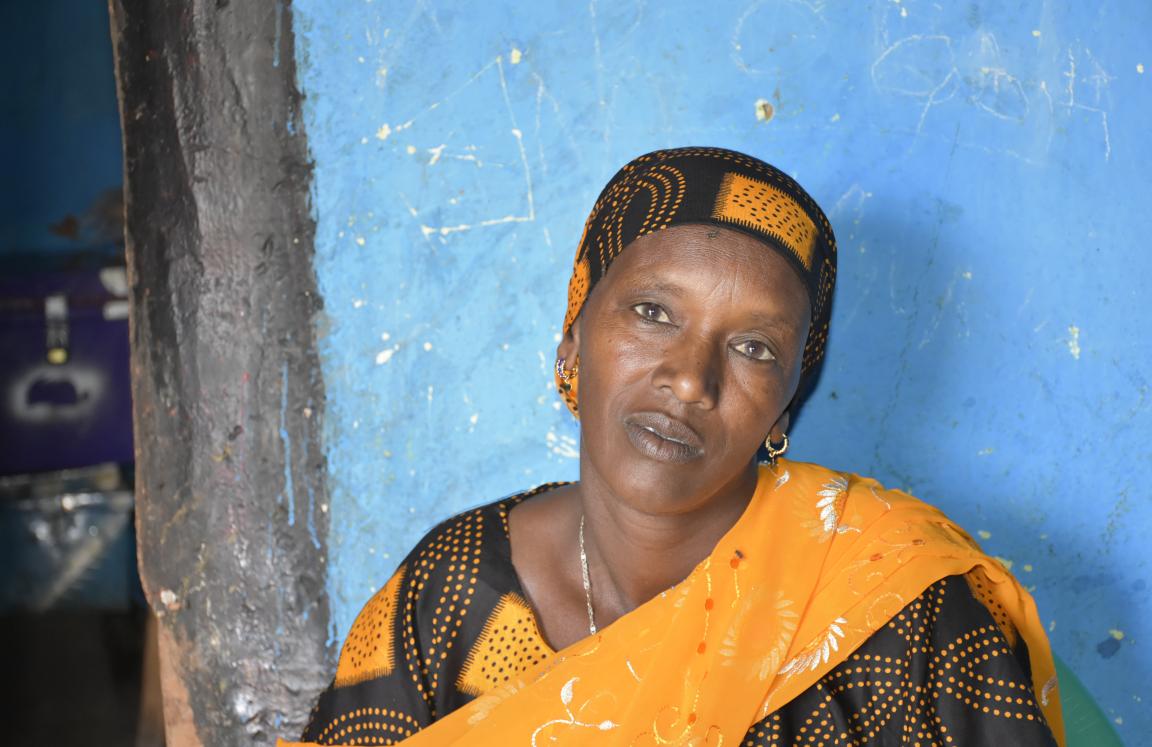
Emergencies
My name is Achuye, I live in Bede district of Borana zone in Ethiopia. My age is 37 and my husband is 52. We have nine children. As pastoralists, we used to have herds of camel and cattle but now we are left with only two oxen and two goats. Now we are living on aid from the government.
It’s been three years since we were hit by the drought. My husband went to adjacent areas in Kenya in search of water for our livestock, but he faced the same problem/drought as here and he lost all the eighty cattle (worth over 75,000USD) he took to Kenya. We had two cows and few goats remaining here, but again we lost them and are left with few goats. Because of all these losses, my husband who is living afar and the family here are suffering in all terms. I can hardly feed my children. As we were unable to send pocket money for one of our daughters in a college in another regional state (Gambela University), our effort to transfer her to a nearby university here failed and she was forced to withdraw from the university to come to us. Our son who we used to pay 10USD/month for his private college in Moyale town has also discontinued his class because of our financial problem.
Now I am leading my life by selling firewood by the side of the main asphalt-road. I pay 0.8USD to pay for transport to reach there and sell the firewood for 1.60USD. With the 0.8USD ‘profit’ I get, I buy 2kg of flour to feed my family. I don’t take any food on the day I go to sell the firewood; I spend the night without food and come back home on the next day with the 0.8 USD ‘profit’ I make.
‘‘The drought took all our livestock and forced us to live on selling firewood’’
December 2022, Borana, Ethiopia
My name is Achuye, I live in Bede district of Borana zone in Ethiopia. My age is 37 and my husband is 52. We have nine children. As pastoralists, we used to have herds of camel and cattle but now we are left with only two oxen and two goats. Now we are living on aid from the government.
It’s been three years since we were hit by the drought. My husband went to adjacent areas in Kenya in search of water for our livestock, but he faced the same problem/drought as here and he lost all the eighty cattle (worth over 75,000USD) he took to Kenya. We had two cows and few goats remaining here, but again we lost them and are left with few goats. Because of all these losses, my husband who is living afar and the family here are suffering in all terms. I can hardly feed my children. As we were unable to send pocket money for one of our daughters in a college in another regional state (Gambela University), our effort to transfer her to a nearby university here failed and she was forced to withdraw from the university to come to us. Our son who we used to pay 10USD/month for his private college in Moyale town has also discontinued his class because of our financial problem.
Now I am leading my life by selling firewood by the side of the main asphalt-road. I pay 0.8USD to pay for transport to reach there and sell the firewood for 1.60USD. With the 0.8USD ‘profit’ I get, I buy 2kg of flour to feed my family. I don’t take any food on the day I go to sell the firewood; I spend the night without food and come back home on the next day with the 0.8 USD ‘profit’ I make.
This was not the way we lived three years ago. Before then, we never sold firewood to make our living. As we used to have many livestock, we sold milk to fulfil what we needed for our life. For bigger spendings, we used to sell one of our cattle. It is the drought we faced that took all our livestock and forced us to live on selling firewood.
As most of us in the kebele /district are in food insecurity, the local government makes screening to distribute the little food aid (mostly grain and edible oil) to give priority to those most affected among us. However, when those who get the food aid come to our villages, they share what they bring to those of us who do not get the aid based on the screening. Thus, those who get the food support in the selection can’t either feed themselves for the month they are given the food.
Achuye with her children by the side of her house. (Pic. By Hailu Nurga/ActionAid)
We are grateful to ActionAid for it is going to construct latrines for our children’s schools in our district that have no latrines and rehabilitate the water supply structures for our cattle that have ceased operation due to mechanical problems. The main reason why we faced total loss of our livestock is lack of water in addition to the dry fields. Most perished for the long distances they went in search water. According to the culture of Borana, we don’t consume the whole water only for our livestock, but we also leave some share for wild animals. So, the water scheme will be useful for both our livestock and wildlife. Not only that, the water supply in our district will not only solve our problem but also the problem of neighbouring districts as they will bring their livestock here for water.
Story written by: Hailu Nurga/ActionAid Ethiopia, December 2022)